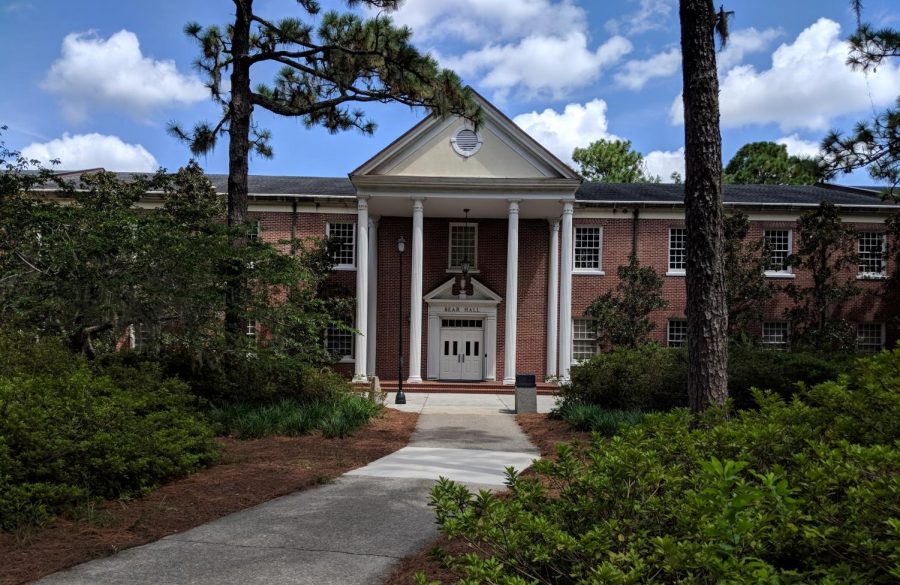UNCW Police participates in active-shooter exercise
Front of Bear Hall, where part of the active-shooter exercise took place.
A week before the fall semester started, the UNC Wilmington Police Department conducted an active-shooter exercise on campus on Tuesday, August 13. University Police worked with over 20 agencies including local law enforcement and medical professionals as well as individual student and faculty volunteers.
The exercise began at 9 a.m. with a simulated report of a student in Bear Hall bleeding from an unknown cause. A second call came in shortly after reporting a shooting had taken place in Randall Library. The officers redirected their forces and began sweeping Randall Library in search of the fake shooter before locating and successfully neutralizing the threat.
After the person impersonating the shooter had been ‘detained,’ the officers then searched DeLoach Hall and neighboring Bear Hall, where the first simulated call had originated, for any other threats. During these sweeps, the officers directed ‘unwounded’ people in the now-secured areas to Kenan Auditorium to await questioning by detectives. The exercise ended at 11:30 a.m. when it was officially concluded.
This exercise had been in the works since early April of this year, which was a few weeks before the shooting at UNCW’s sister campus UNC Charlotte that took the lives of two students and wounded four others. The suspect in the Charlotte shooting was formally indicted by a grand jury on May 6 and is currently awaiting an official trial date by the North Carolina Superior Court.
Since the conclusion of the exercise, the university announced that they consider the exercise successful. Major Chris Bertram, assistant chief of UNCW Police, expressed that it was considered successful for more than one reason, namely the involvement of other agencies and civilians.
Bertram stated in an interview that while UNCW Police are constantly practicing smaller scale exercises, “What we don’t get to practice often is working with all of the other agencies that we know would come should something happen here. And even when you do get together with a couple of other agencies and exercise, you’re usually sweeping empty buildings.”
The exercise also placed emphasis on making it as realistic as possible including sending volunteers who were marked as ‘injured’ to the hospital, so local emergency services could practice their response as well.
Bertram placed emphasis on the ‘realness’ of the exercise by saying, “Because of the help we got from volunteers, students, staff and faculty, we were able to have people in those rooms, so as the officers were clearing the buildings, they encounter folks that weren’t bad guys. You had to deal with casualties and vetting— is it a good guy, is it bad guy, what do I do with them, how do I get them out, where is the safest place to put them? So we got to exercise a lot of things we don’t normally get to do.”
Bertram further commented that “a lot of the realness was thanks to the volunteers, and I cannot say how much we appreciate them volunteering.”








